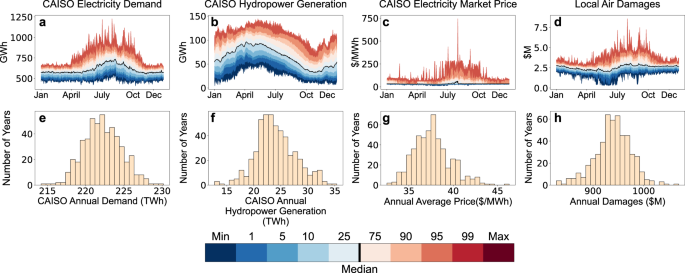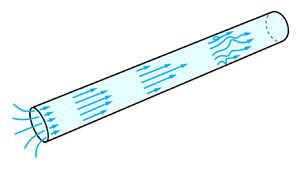2023-03-23 ノースカロライナ州立大学(NCState)
この研究は、Nature Communicationsに掲載された。特に、暑い年により多くの空調が必要で、化石燃料発電所が代替電力源として使用されるため、最も悪い大気汚染が見られた。また、熱波によって汚染が急増する一方で、干ばつは汚染に対する慢性的な影響を与えることが明らかになった。
しかし、発電所に罰金を課すことで、大気汚染を削減することができることも分かった。ただし、猛烈な熱波の際には、罰金制度は効果を発揮しない。
<関連情報>
- https://news.ncsu.edu/2023/03/drought-heat-waves-worsen-west-coast-air-pollution-inequality/
- https://www.nature.com/articles/s41467-023-37080-0
米国西海岸の干ばつと熱波は、汚染の不平等を悪化させ、排出抑制政策を回避することができる U.S. West Coast droughts and heat waves exacerbate pollution inequality and can evade emission control policies
Amir Zeighami,Jordan Kern,Andrew J. Yates,Paige Weber & August A. Bruno
Nature Communications Published:23 March 2023
DOI:https://doi.org/10.1038/s41467-023-37080-0

Abstract
Droughts reduce hydropower production and heatwaves increase electricity demand, forcing power system operators to rely more on fossil fuel power plants. However, less is known about how droughts and heat waves impact the county level distribution of health damages from power plant emissions. Using California as a case study, we simulate emissions from power plants under a 500-year synthetic weather ensemble. We find that human health damages are highest in hot, dry years. Counties with a majority of people of color and counties with high pollution burden (which are somewhat overlapping) are disproportionately impacted by increased emissions from power plants during droughts and heat waves. Taxing power plant operations based on each plant’s contribution to health damages significantly reduces average exposure. However, emissions taxes do not reduce air pollution damages on the worst polluting days, because supply scarcity (caused by severe heat waves) forces system operators to use every power plant available to avoid causing a blackout.



